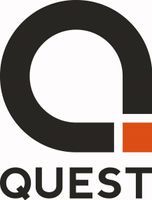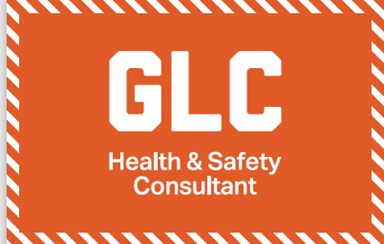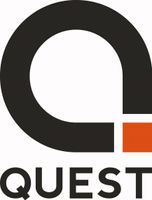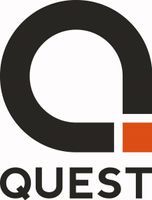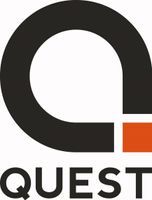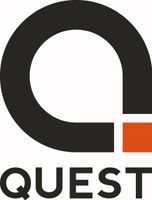Title Page
-
Site conducted
-
Details of Premises
-
Operational Hours
-
Personnel
-
Rented or Owned
-
Date of Assessment
-
Assessed by
Assessment
-
Critical Items *
-
- Full compliance (>95% on observation)
- Some evidence of compliance
- No or insufficient evidence of compliance (<50% on observation)
Management of Health & Safety
-
Evidence of H&S policy deployment*
- Full compliance
- Some evidence of compliance
- No/insufficient evidence of compliance
- N/A
-
Evidence of Employers Liability Insurance
- Full compliance
- Some evidence of compliance
- No/insufficient evidence of compliance
- N/A
-
Risk assessement carried out and communicated and visible*
- Full compliance
- Some evidence of compliance
- No/insufficient evidence of compliance
- N/A
-
Risk controls communicated and visible*
- Full compliance
- Some evidence of compliance
- No/insufficient evidence of compliance
- N/A
-
Are Toolbox Talks in place
- Full compliance
- Some evidence of compliance
- No/insufficient evidence of compliance
- N/A
-
Legal requirements identified and communicated
- Full compliance
- Some evidence of compliance
- No/insufficient evidence of compliance
- N/A
-
Objectives and Targets practicable and communicated
- Full compliance
- Some evidence of compliance
- No/insufficient evidence of compliance
- N/A
-
H&S responsibilities clearly allocated and safety is a priority in meetings with sufficient air time
- Full compliance
- Some evidence of compliance
- No/insufficient evidence of compliance
- N/A
-
Competence requirements assessed and training ongoing
- Full compliance
- Some evidence of compliance
- No/insufficient evidence of compliance
- N/A
-
Communication of safety information visible
- Full compliance
- Some evidence of compliance
- No/insufficient evidence of compliance
- N/A
-
System for incident reporting available and known*
- Full compliance
- Some evidence of compliance
- No/insufficient evidence of compliance
- N/A
-
System for complaints available and known*
- Full compliance
- Some evidence of compliance
- No/insufficient evidence of compliance
- N/A
-
System for investigation and corrective and preventative actions*
- Full compliance
- Some evidence of compliance
- No/insufficient evidence of compliance
- N/A
-
Management review/Health and Safety Meetings.
- Full compliance
- Some evidence of compliance
- No/insufficient evidence of compliance
- N/A
Traffic Management
-
Site traffic plan available
- Full compliance
- Some evidence of compliance
- No/insufficient evidence of compliance
- N/A
-
Evidence of pedestrian and vehicle segregation
- Full compliance
- Some evidence of compliance
- No/insufficient evidence of compliance
- N/A
-
Evidence of driver licence checks.
- Full compliance
- Some evidence of compliance
- No/insufficient evidence of compliance
- N/A
-
Allocated parking (customers, employee, truck)
- Full compliance
- Some evidence of compliance
- No/insufficient evidence of compliance
- N/A
-
Roads and walkways clear and in good condition
- Full compliance
- Some evidence of compliance
- No/insufficient evidence of compliance
- N/A
Lift trucks
-
Daily & weekly checks completed and units serviced
- Full compliance
- Some evidence of compliance
- No/insufficient evidence of compliance
- N/A
-
Basic training, familiarisation and authorisation complete
- Full compliance
- Some evidence of compliance
- No/insufficient evidence of compliance
- N/A
-
Observed safe working practices*
- Full compliance
- Some evidence of compliance
- No/insufficient evidence of compliance
- N/A
Compressors
-
Evidence of Statutory Inspections
- Full compliance
- Some evidence of compliance
- No/insufficient evidence of compliance
- N/A
-
Evidence of Maintenance
- Full compliance
- Some evidence of compliance
- No/insufficient evidence of compliance
- N/A
Housekeeping
-
Tools, equipment clean and in designated place
- Full compliance
- Some evidence of compliance
- No/insufficient evidence of compliance
- N/A
-
Floor free of slip/trip hazards.
- Full compliance
- Some evidence of compliance
- No/insufficient evidence of compliance
- N/A
-
Work areas and walkways clear of tools and equipment *
- Full compliance
- Some evidence of compliance
- No/insufficient evidence of compliance
- N/A
-
Risk assessments and Safe Working Practices available.
- Full compliance
- Some evidence of compliance
- No/insufficient evidence of compliance
- N/A
Working at Height/ Fall Protection
-
Evidence of systematic approach to eliminate or reduce risks
- Full compliance
- Some evidence of compliance
- No/insufficient evidence of compliance
- N/A
-
Inspection pits (edge protection and adequate lighting)
- Full compliance
- Some evidence of compliance
- No/insufficient evidence of compliance
- N/A
-
WAH equipment labelled, registered and inspected also in good condition
- Full compliance
- Some evidence of compliance
- No/insufficient evidence of compliance
- N/A
-
Powered access equipment used by trained authorised personnel
- Full compliance
- Some evidence of compliance
- No/insufficient evidence of compliance
- N/A
-
Scaffolds and systems assembled and checked by trained authorised personnel
- Full compliance
- Some evidence of compliance
- No/insufficient evidence of compliance
- N/A
-
Ladders/steps/hop-ups inspected, controlled and used correctly
- Full compliance
- Some evidence of compliance
- No/insufficient evidence of compliance
- N/A
-
Harness or landyard used as last resort, anchor points tested, rescue plan
- Full compliance
- Some evidence of compliance
- No/insufficient evidence of compliance
- N/A
-
Records of work at height training availble
- Full compliance
- Some evidence of compliance
- No/insufficient evidence of compliance
- N/A
-
Observed correct selection of working at height equipment *
- Full compliance
- Some evidence of compliance
- No/insufficient evidence of compliance
- N/A
Personal Protective Equipment
-
Visible warning signs for use of PPE
- Full compliance
- Some evidence of compliance
- No/insufficient evidence of compliance
- N/A
-
Observed use of PPE (Overalls, steel toecap boots, gloves, bumpcap etc)*
- Full compliance
- Some evidence of compliance
- No/insufficient evidence of compliance
- N/A
Ergonomics (Manual Handling / Workstations)
-
Evidence of training/ refresher training
- Full compliance
- Some evidence of compliance
- No/insufficient evidence of compliance
- N/A
-
Assessment process in place*
- Full compliance
- Some evidence of compliance
- No/insufficient evidence of compliance
- N/A
-
Ergonomic aids (handlers/ tools) in use
- Full compliance
- Some evidence of compliance
- No/insufficient evidence of compliance
- N/A
-
Identification of excessive weights/ tasks
- Full compliance
- Some evidence of compliance
- No/insufficient evidence of compliance
- N/A
Hazardous Materials/ Industrial Hygiene
-
Materials safety data sheets available
- Full compliance
- Some evidence of compliance
- No/insufficient evidence of compliance
- N/A
-
CoSHH safety assessments completed
- Full compliance
- Some evidence of compliance
- No/insufficient evidence of compliance
- N/A
-
Is Health Surveillance required and in place
- Full compliance
- Some evidence of compliance
- No/insufficient evidence of compliance
- N/A
-
Staff aware on CoSHH assessment findings
- Full compliance
- Some evidence of compliance
- No/insufficient evidence of compliance
- N/A
-
Local exhaust ventilation operational, used and inspected/tested
- Full compliance
- Some evidence of compliance
- No/insufficient evidence of compliance
- N/A
-
Noise levels assessed, protection zones identified and marked
- Full compliance
- Some evidence of compliance
- No/insufficient evidence of compliance
- N/A
-
Vibration levels assessed, exposure controlled
- Full compliance
- Some evidence of compliance
- No/insufficient evidence of compliance
- N/A
-
Effectiveness of hygiene arrangements confirmed by health surveillance
- Full compliance
- Some evidence of compliance
- No/insufficient evidence of compliance
- N/A
-
Observed control of chemical and physical agents*
- Full compliance
- Some evidence of compliance
- No/insufficient evidence of compliance
- N/A
-
Observed use of correct PPE with hazardous materials*
- Full compliance
- Some evidence of compliance
- No/insufficient evidence of compliance
- N/A
-
Are Welfare facilities adequate e.g. hot water, sanitary bins
- Full compliance
- Some evidence of compliance
- No/insufficient evidence of compliance
- N/A
Electrical Safety
-
Electrical cabinets labelled and locked
- Full compliance
- Some evidence of compliance
- No/insufficient evidence of compliance
- N/A
-
Portable appliances tested according to guidance
- Full compliance
- Some evidence of compliance
- No/insufficient evidence of compliance
- N/A
-
Fixed electrical tested completed in past 5 years*
- Full compliance
- Some evidence of compliance
- No/insufficient evidence of compliance
- N/A
Lifting Equipment and Lifting Operations
-
Basic training, familiarisation and authorisation complete*
- Full compliance
- Some evidence of compliance
- No/insufficient evidence of compliance
- N/A
-
Lifting operations carried out in accordance with written plan*
- Full compliance
- Some evidence of compliance
- No/insufficient evidence of compliance
- N/A
-
Lifting equipment maintained and inspected including statuory inspection*
- Full compliance
- Some evidence of compliance
- No/insufficient evidence of compliance
- N/A
Machinery / Tools / Equipment
-
Power tools maintained and inspected regularly
- Full compliance
- Some evidence of compliance
- No/insufficient evidence of compliance
- N/A
-
Machines guarded, emergency stops visible and functional*
- Full compliance
- Some evidence of compliance
- No/insufficient evidence of compliance
- N/A
-
Knowledge of daily visual checks and issue reporting*
- Full compliance
- Some evidence of compliance
- No/insufficient evidence of compliance
- N/A
-
Calibration inspections completed and issues resolved
- Full compliance
- Some evidence of compliance
- No/insufficient evidence of compliance
- N/A
-
Racking/stillages and fixed vehicle ramps in good condition with load capacity marked
- Full compliance
- Some evidence of compliance
- No/insufficient evidence of compliance
- N/A
-
Rolling road, vehicle wash, parts wash, powered press, etc. serviced and inspected
- Full compliance
- Some evidence of compliance
- No/insufficient evidence of compliance
- N/A
-
Statutory inspections completed, issues resolved (presses, racking, pressure systems, etc.)*
- Full compliance
- Some evidence of compliance
- No/insufficient evidence of compliance
- N/A
-
Are roller shutters maintained
- Full compliance
- Some evidence of compliance
- No/insufficient evidence of compliance
- N/A
Control of Hybrid / Electric Vehicles
-
Managers/supervisors competent to supervise
- Full compliance
- Some evidence of compliance
- No/insufficient evidence of compliance
- N/A
-
Technicians competent to work on vehicles to the extent required*
- Full compliance
- Some evidence of compliance
- No/insufficient evidence of compliance
- N/A
-
Correct tooling available, maintained and used
- Full compliance
- Some evidence of compliance
- No/insufficient evidence of compliance
- N/A
-
Technicians have personal padlocks; no master key*
- Full compliance
- Some evidence of compliance
- No/insufficient evidence of compliance
- N/A
-
Instructions are available and followed
- Full compliance
- Some evidence of compliance
- No/insufficient evidence of compliance
- N/A
-
Handover and handback process is followed*
- Full compliance
- Some evidence of compliance
- No/insufficient evidence of compliance
- N/A
Control of contractors
-
Contractors have been inducted with site rules and their work is planned and authorised*
- Full compliance
- Some evidence of compliance
- No/insufficient evidence of compliance
- N/A
-
Contractors are managed and monitored to confirm safe working/compliance with site rules*
- Full compliance
- Some evidence of compliance
- No/insufficient evidence of compliance
- N/A
Fire
-
Fire risk assessment available
- Full compliance
- Some evidence of compliance
- No/insufficient evidence of compliance
- N/A
-
Is there a Fire Policy
- Full compliance
- Some evidence of compliance
- No/insufficient evidence of compliance
- N/A
-
Gas cylinders and bulk flammables stored securely
- Full compliance
- Some evidence of compliance
- No/insufficient evidence of compliance
- N/A
-
Flammables are segregated and minimised in work rooms
- Full compliance
- Some evidence of compliance
- No/insufficient evidence of compliance
- N/A
-
Fire detection, warning and emergency lighting systems in place and tested
- Full compliance
- Some evidence of compliance
- No/insufficient evidence of compliance
- N/A
-
Fire fighting equipment available and maintained
- Full compliance
- Some evidence of compliance
- No/insufficient evidence of compliance
- N/A
-
Suitable means of escape and suitable signage
- Full compliance
- Some evidence of compliance
- No/insufficient evidence of compliance
- N/A
-
Escape routes clear at all times.
- Full compliance
- Some evidence of compliance
- No/insufficient evidence of compliance
- N/A
-
Site evaccuation drill completed and recorded annually*
- Full compliance
- Some evidence of compliance
- No/insufficient evidence of compliance
- N/A
-
Observed control of chemicals and hazardous materials in CoSHH cupboard.
- Full compliance
- Some evidence of compliance
- No/insufficient evidence of compliance
- N/A
First aid
-
First aid needs identifed and assessed
- Full compliance
- Some evidence of compliance
- No/insufficient evidence of compliance
- N/A
-
Sufficiently equipped and resourced first aid provision provided*
- Full compliance
- Some evidence of compliance
- No/insufficient evidence of compliance
- N/A
Comments / findings
-
Comments / findings
-
undefined
- Full compliance
- Some evidence of compliance
- No/insufficient evidence of compliance
- N/A






